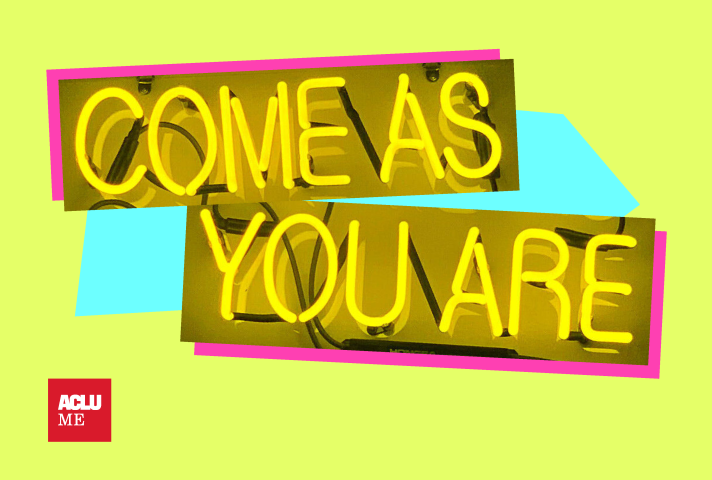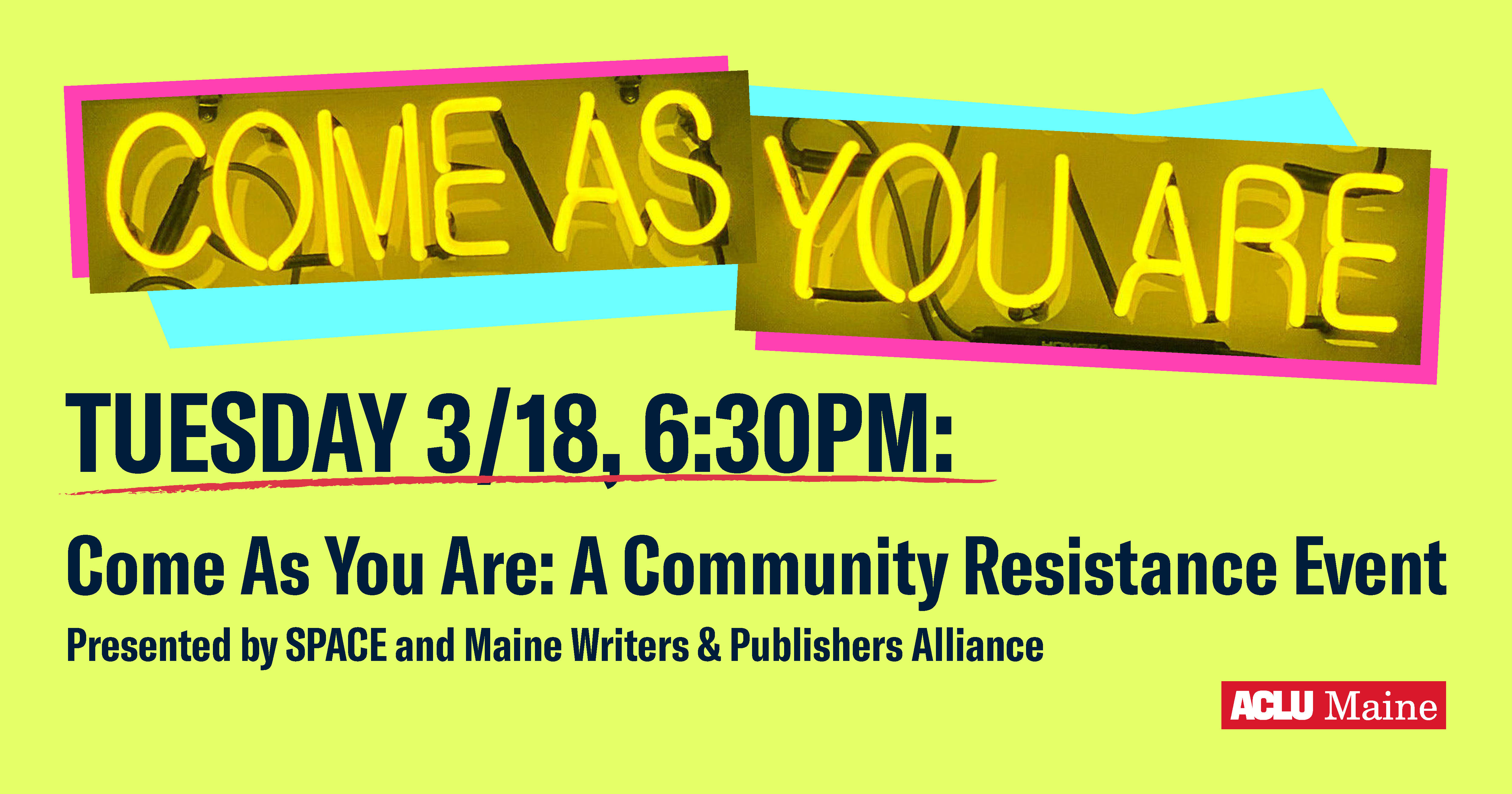Join us March 18th at Space Gallery, where ACLU of Maine's Executive Director Molly Curren Rowles will be speaking, among others.
Many of us are feeling tremendous fear, exhaustion, and grief. One way of resisting the cruelty and chaos of the current moment is to gather, process what’s happening, and identify actions we can take to protect the people and values that are integral to the communities we care about.
Please join Maine Writers & Publishers Alliance and SPACE for an evening of expression, creation, and activism, featuring short readings in response to the current moment by writers and community leaders, and information on what you can do right now from local organizations.
Featuring readings from:
Samaa Abdurraqib, Dania Bowie, Brandon Ying Kit Boey, Michael Colbert, Chelsea Conaboy, Samara Cole Doyon, Abdi Nor Iftin, Reza Jalali, Jessi Holleran, Rylan Hynes, Nick Fuller Googins, Hannah Matthews, Coco McCracken, Sampson Spadafore, Phuc Tran, and more.
With information tables from:
ACLU of Maine, Brazen Bandits, EqualityMaine, MaineTransNet, and SAFE Maine
There will also be:
- Opportunities to jot down and reflect on the moment and strategies for persisting (and to share or not share as desired)
- Drinks, snacks, and community.
- Tears and laughter are welcome!
Show up and be in the room. This act of solidarity is bigger than it sounds.


